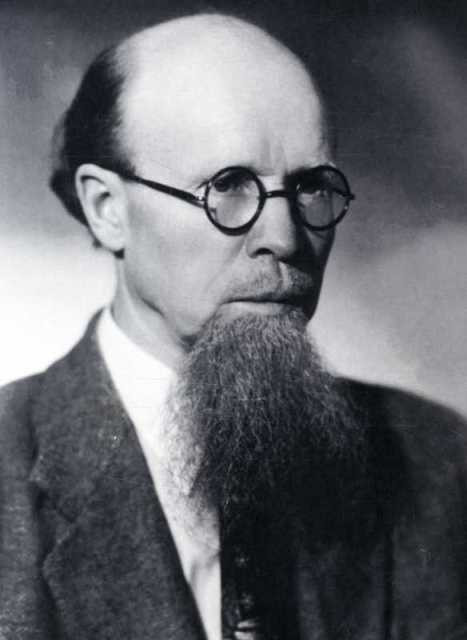
Jēkabs Graubiņš
(16.04.1886 - 03.12.1961 )
Composer and musicologist – has made a valuable contribution to Latvian choral music, folklore research, music criticism, and literature for music education. In the 1920s and 1930s, together with Emilis Melngailis, whose principles of diatonic harmony he respected, Graubiņš was one of the most distinguished composers of choral works based on folklore. He obtained substantial education in music and its teaching at the teachers colleges in Valmiera (1902–1905) and St. Petersburg (1909–1912). In 1919 he enrolled at the LC and was one of the first of Jazeps Vitols' students to graduate in composition (1924). Of considerable importance to Latvian society in the years following were his methodological materials for music education and development, as well as his work as a teacher in various educational institutions, including the LC and LSC from 1938 to 1950 (a professor there from 1945). Unable to meet the occupying regime's ideological demands in his work as lecturer, Graubiņš fell into disfavour, suffered repression and political imprisonment in Siberia (1950–1955).
Graubins was also one of the best-known music critics of the 1920s and 1930s. Expressive and rational use of texture, balance of form, and imaginative musical thinking are the hallmarks of his choral style. His compositions also include works for symphony orchestra, and for organ, as well as chamber music and about 90 solo songs. Choral compositions take pride of place among his works and they include some 220 folk song arrangements (including those for children's choir). Stylistically, while following Melngailis' natural melodic principles, Graubins was at the same time an innovator: he created arrangements with broader forms, often using polyphonic ideas borrowed from professional music, and was much freer in his use of choral textures with virtuosic features. Graubins also wrote works for solo voice with accompaniment, organ, symphony orchestra, voices and orchestra, chamber music and a great deal of material for music education. His scholarly writings on folklore include Latviesu tautas dziesmu muzika [The Music of Latvian Folk Songs] in the publication Latviešu literatūras vēsture [History of Latvian Literature], vol.1 (Riga, 1935), and Talsu novada tautas melodijas [Folk Tunes from the Talsi District] in the book Talsu novads [The District of Talsi] (Rīga, 1935).
